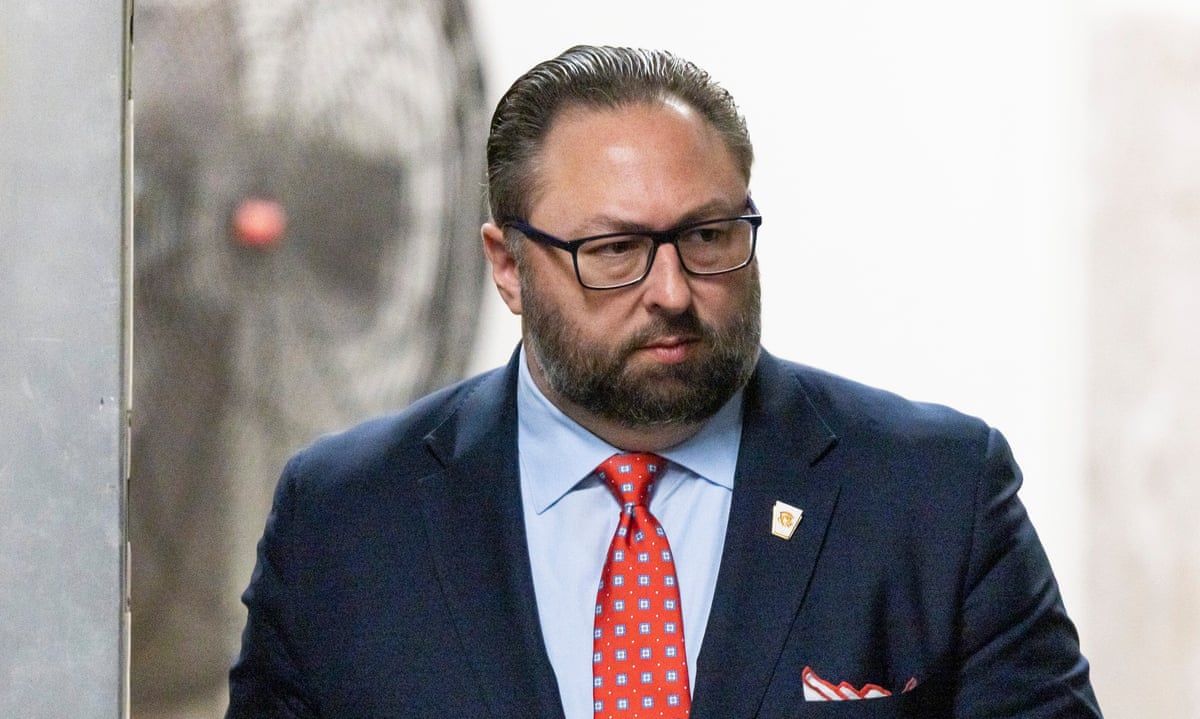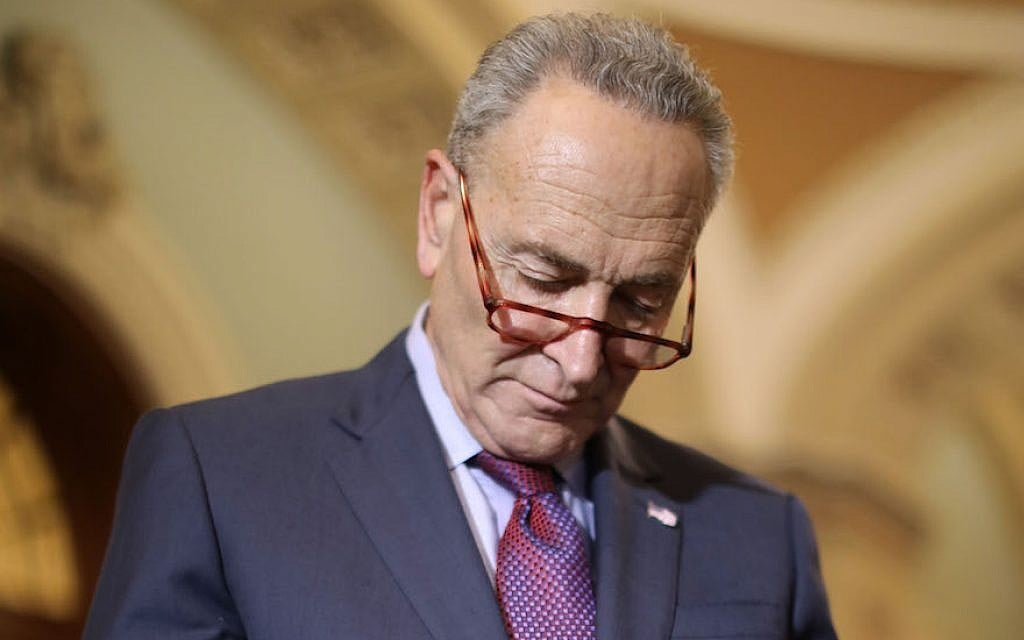
In a bold move that has sent ripples through Washington, President Donald Trump has dismissed the entire Advisory Committee on Historical Diplomatic Documentation, citing concerns about political bias.
The advisory committee, a longstanding body tasked with guiding the State Department on the publication of the Foreign Relations of the United States (FRUS) series, found itself at the center of controversy after the president's decision to remove all of its members last month.
The dismissal came via an email sent by White House liaison to the State Department, Cate Dillon, informing committee members of their immediate termination.
“On behalf of President Donald Trump, I am writing to inform you that your position on the Advisory Committee on Historical Diplomatic Documentation is terminated effective immediately,” Dillon wrote, according to the Washington Post. However, the email did not provide any specific reasons for the dismissal.
The controversy surrounding the committee intensified when Timothy Naftali, a former member and historian, publicly announced his firing on X (formerly Twitter). Right-wing critics of the committee quickly seized on Naftali’s past statements, accusing him of harboring anti-Trump and anti-American sentiments.
Naftali is not alone in facing such scrutiny. James Goldgeier, the committee’s chairman and a professor at American University’s School of International Service, has also faced accusations of political bias against Trump.
The Advisory Committee on Historical Diplomatic Documentation is responsible for overseeing the publication of the FRUS series, which serves as the official documentary record of U.S. foreign policy.
The committee's duties include reviewing and selecting documents, ensuring accuracy in the historical record, and overseeing the proper declassification and public release of relevant materials. It is widely regarded as a crucial body in preserving the integrity of U.S. diplomatic history.

In his public comments, Goldgeier emphasized that the committee’s work is focused on documents from the Reagan administration and stressed that the group was not engaged in the release of materials related to the current administration.
Despite this, the committee’s handling of past records and its influence over how U.S. foreign policy is documented has come under scrutiny due to the perceived political leanings of its members.
One of the most vocal critics of the committee has been President Trump, who has long accused various segments of the U.S. bureaucracy of harboring political biases that undermine his administration.
The dismissal of the committee members appears to be in line with his broader efforts to purge government institutions of individuals he perceives as politically hostile.
Goldgeier, who served as the committee’s chairman, has been especially vocal in his criticism of Trump’s handling of several key national issues, including the COVID-19 pandemic and the Black Lives Matter protests of 2020.
In one post on X in July 2020, Goldgeier said, “It wasn’t enough for Trump to kill Americans through his incompetence and disinterest in dealing with the pandemic. Now he’s got DHS attacking peaceful Americans to distract from his failure to care about the pandemic.”
This comment, among others, contributed to the backlash against Goldgeier and his fellow committee members.
The criticism from the right has been swift and pointed. Trump’s supporters have accused Goldgeier and Naftali of using their positions to push a political agenda, with some even labeling them as anti-American.
They argue that historians and public officials should remain neutral and avoid letting personal political views shape the historical record.
The FRUS series has been a cornerstone of American diplomatic history for over a century. It is a comprehensive, government-published archive that includes diplomatic documents, reports, and correspondence related to U.S. foreign policy. The series is considered an invaluable resource for historians, scholars, and policymakers alike.
The Advisory Committee’s role in overseeing the publication of these materials is therefore critical to ensuring that U.S. foreign policy history is preserved accurately and impartially.
Any perceptions of political interference or bias in the selection and release of these documents could undermine public trust in the integrity of the historical record.
President Trump’s decision to dismiss the members of the Advisory Committee on Historical Diplomatic Documentation is consistent with his broader approach to challenging institutions he believes are stacked against him.
Throughout his presidency, Trump has been vocal in his disdain for what he views as a “deep state” of bureaucrats who oppose his policies and work to undermine his agenda.
In this context, the dismissal of the advisory committee members may be seen as part of Trump’s ongoing efforts to reshape the federal government to reflect his political views.
By removing individuals he deems politically biased, Trump is signaling to his supporters that he is taking a stand against what he perceives as a left-wing establishment.

However, the move has sparked concerns among critics, who argue that it threatens the integrity of important government bodies and could set a dangerous precedent for future administrations.
Critics worry that political loyalty will become a deciding factor in appointments to key positions, rather than merit or expertise.
Despite the political controversy surrounding the committee’s members, Goldgeier has pointed out that the Advisory Committee on Historical Diplomatic Documentation is congressionally mandated.
In interviews, he expressed concern that the committee’s disbandment or replacement with politically favorable appointees could undermine the work of preserving U.S. diplomatic history.
Goldgeier emphasized that the committee is still working through historical records from the Reagan administration, which are subject to a 30-year declassification rule. He also voiced concerns about the potential for the Trump administration to undermine this process for political gain.
“It just seems to me like they just got a list from all the agencies [of similar committees] … I can’t imagine they looked much into what any of the particular ones did,” Goldgeier said. “And I don’t know that they understood that this one is congressionally mandated.”
A senior State Department official, however, told the Washington Post that the committee would be maintained, despite the firings. The official indicated that Trump did not intend to dissolve the committee, but rather replace its members with individuals who are less politically charged.
The decision to dismiss the advisory committee members has further fueled the growing polarization between Trump’s supporters and detractors. For Trump’s base, the move is seen as a necessary step in purging the government of individuals who are perceived as hostile to his administration.

It also reinforces the narrative of a president who is willing to take on entrenched political interests, even when doing so alienates powerful institutions.
On the other hand, critics argue that the decision is part of a broader pattern of politically motivated firings that could erode the professionalism and neutrality of government agencies.
They worry that replacing expert members with politically loyal appointees could degrade the quality of public service and lead to further politicization of government functions.
Despite the controversy surrounding his administration’s actions, President Trump’s approval ratings have seen a notable increase in recent months. According to polling data from InsiderAdvantage and Trafalgar Group, Trump’s approval among likely voters has risen significantly since the beginning of the year.
In April, a poll showed Trump holding a narrow 2-point lead in approval versus disapproval among likely voters. However, by June, his approval had surged to 54%, an 8-point swing that came despite the survey slightly oversampling Democrat voters.
This boost in approval numbers signals a shift in public sentiment and suggests that Trump’s base remains steadfast in their support for his policies.
Polling from Rasmussen also reflected similar findings. On June 2, Trump’s approval was at 53%, just 3 points below where he stood during his inauguration week. These numbers indicate that Trump’s support remains robust, even in the face of significant political opposition.
As President Trump’s approval numbers rise, it’s clear that his political strategy of challenging established institutions continues to resonate with a large segment of the American public.

The dismissal of the Advisory Committee on Historical Diplomatic Documentation is just one example of how Trump is reshaping government institutions to reflect his political vision.
For now, the political fallout from the dismissals will likely continue to unfold. Trump’s supporters will rally behind him, while his critics will continue to scrutinize his actions and question the long-term consequences of politicizing key government functions.
The ultimate impact of Trump’s decision to dismiss the advisory committee members remains to be seen, but it is clear that his administration will continue to push back against institutions and individuals that it views as politically hostile.
In the end, the battle over the role of government agencies and the preservation of American history will continue to play out on the national stage.



-1749877511-q80.webp)
